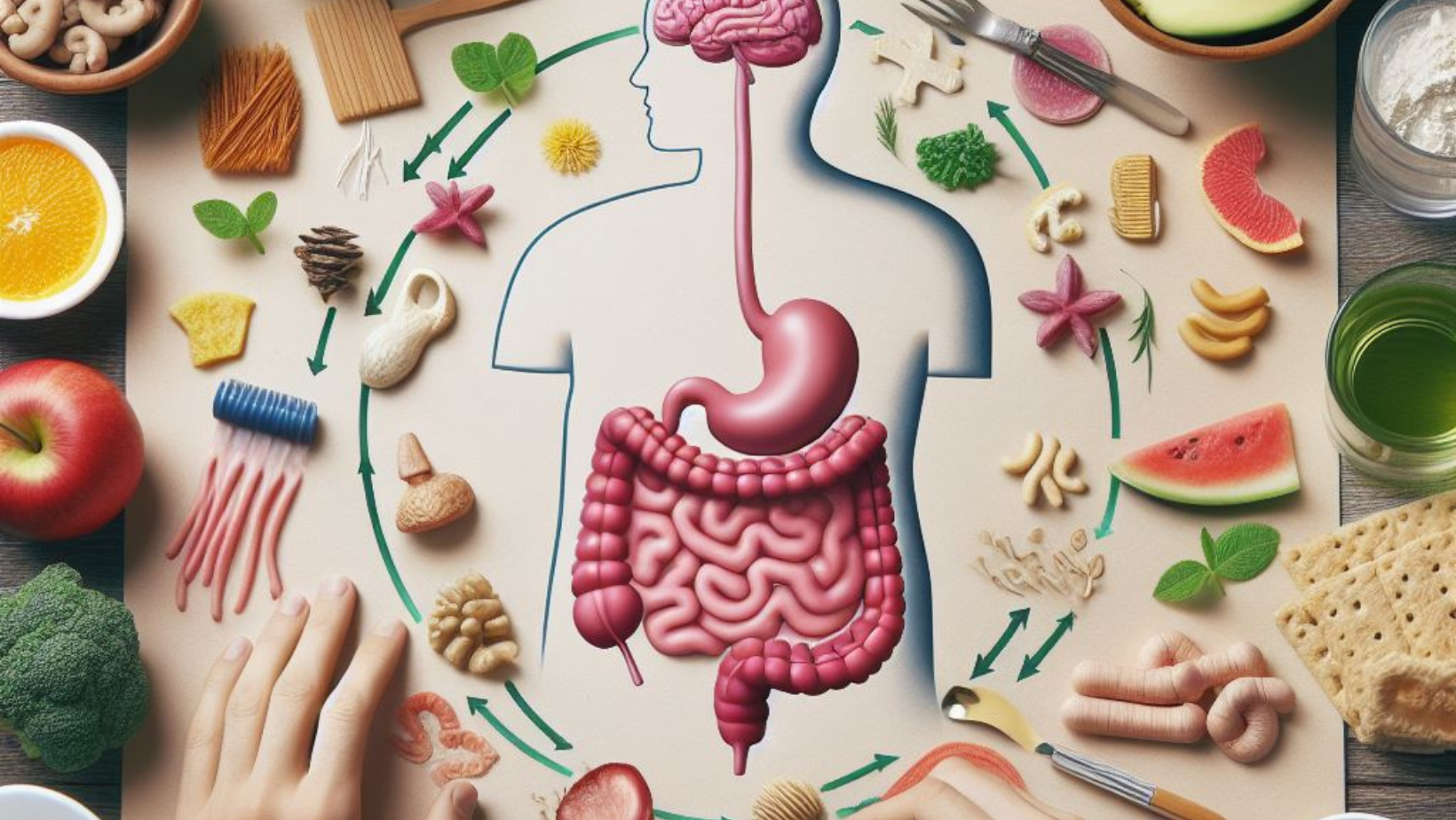
I’m here to help you understand the intricate tapestry that is the gut-brain connection. This isn’t just about your stomach or your mood; it’s about the underappreciated link between your digestive tract and your mental well-being. Historically, healers and health practitioners have long sensed a connection between the gut and overall health, but it’s only recently that science has started to unravel the complex communication happening between the gut and the brain.
You’re going to find out about how our understanding of this relationship has evolved. From ancient theories of humorism to modern neuroscience, the concept of a link between the stomach and emotions has intrigued researchers for centuries. But it’s the cutting-edge studies conducted in the last few decades that have truly brought this field into the limelight of health science.
Today, I’m going to be talking about the key discoveries that have helped illuminate how the gut and brain converse with each other. These conversations take place on a biochemical level and have profound impacts on both our physical and mental health. We’ll delve into the nervous system’s role in this dialogue, the importance of various hormones and neurotransmitters, and the significant effect of gut microbiota on our overall state of well-being.
How The Gut Communicates With The Brain
So, how do these two distant yet interconnected systems ‘talk’ to each other? Meet the gut-brain axis, a two-way line of communication between your central nervous system (CNS), which includes your brain and spinal cord, and your gastrointestinal tract. It’s a complex network involving nerve signals, hormones, and immune system factors. One of the major players here is the vagus nerve, the longest nerve of the autonomic nervous system, which acts like a superhighway transmitting a multitude of messages.
Let’s unpack the role of neurotransmitters – these are the chemical messengers your brain cells use to communicate. Surprisingly, your gut cells talk the same chemical language. For instance, did you know an estimated 90% of your body’s serotonin, a key mood regulator, is produced in the gut? Similarly, the gut is involved in crafting other neurotransmitters like GABA and dopamine, influencing feelings of calm or motivation.
Now, enter the microbiome, the vast ecosystem of bacteria residing in your gut. These tiny organisms are not just passive residents; they actively contribute to your health by producing substances that can affect your brain. They also help regulate the integrity of the gut barrier, preventing unwanted substances from ‘leaking’ into the body and causing inflammation, which may lead to mental health issues.
I’m going to let you in on a secret – the types of foods we eat can significantly influence this gut-brain chatter. So if you’ve ever wondered why you feel a certain way after eating specific foods, it’s likely due to this intimate communication channel. This isn’t just about gut health; it’s also about how dietary choices can shape our emotions and cognitive functions.
Remember, balancing the gut-brain dialogue is key to mental and emotional well-being. This incredibly intricate relationship underscores the importance of nurturing our gut health, which is what you’re going to find out about in the next part of our conversation.
Nurturing the Gut for Mental and Emotional Well-being
I’m here to help you understand the significance of nurturing your gut for not only your physical health but for your mental and emotional well-being too. You’re going to find out about ways to support a healthy gut-brain connection. The foods you eat play a pivotal role in this dynamic. Including prebiotics and probiotics in your diet encourages a flourishing microbiome. Prebiotics are like food for the good bacteria in your gut, while probiotics are live beneficial bacteria. Fermented foods? They’re rich in probiotics and can be a tasty addition to your meals.
But this isn’t just about what you eat; it’s also about managing stress. Chronic stress can wreak havoc on your gut bacteria, and vice versa. Your gut’s condition can significantly impact your stress levels, potentially creating a cycle that you want to avoid. I’ll give you practical tips on how to lower stress levels, which, in turn, will support your gut health.
Simple everyday activities like regular exercise, sufficient sleep, and mindfulness practices can have profound effects on your gut wellness. Choose something that resonates with you; whether it’s yoga, meditation, or simply taking a walk, finding stress-reducing activities you enjoy is crucial. There’s a lot of opportunity in these simple strategies to gently guide both gut health and mental well-being.
Remember, your first attempt at nurturing your gut doesn’t need to be your last. You can always adjust your approach down the road. By paying attention to these aspects, we set the stage for a healthier, more balanced mind and body, paving the way to exploring deeper implications in healthcare, which we’ll discuss in the next section.
Implications and Innovations in Health Care Practices
The insights into the gut-brain connection are reshaping our understanding of health and wellness. In the sphere of holistic medicine, the focus is shifting to include gut health as a fundamental aspect of treating mental and physical disorders.
Research is increasingly suggesting that imbalances in the gut microbiome may be linked to various psychiatric and neurological disorders, such as depression, anxiety, and even autism. This paves the way for new, innovative treatment approaches that incorporate dietary changes, probiotic supplements, and other gut-centric methods.
An exciting development is the rise of personalized medicine, where treatments aren’t one-size-fits-all but tailored to the individual’s unique gut flora. Imagine a future where a simple gut microbiota analysis could help customize your diet or treatment plan, leading to more effective health outcomes.
Today, I’ve given you a glimpse into the powerful gut-brain connection and its potential to revolutionize health care. If there’s one takeaway, it’s that taking care of your gut is taking care of your mind. As research progresses, we are bound to uncover even more about this intricate relationship, opening doors to enhanced well-being and novel therapeutic options.
DDH
